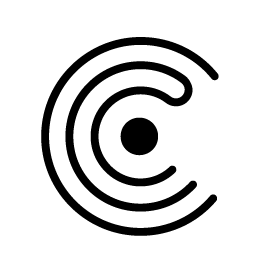This is a curated list of Jamie Wheal’s frameworks, the Pulitzer Prize-winning author of Stealing Fire and Co-Founder of the Flow Genome Project.
My Perspective on Jamie’s Teachings
Our current culture, especially the New Age Spirituality movement is devoid of many if not all of these frameworks and guardrails.
Jamie used his studies of indigenous cultures and personal experience in hopes of inspiring others to add their own unique blend to new-age spiritual practices. In his latest book “Recapture the Rapture” he attempts to lay out his own frame and guidelines on what that could look like.
I, like the stereotypically spiritually lost Millenial that I am, didn’t resonate with Catholicism or even Christianity at large. No matter how many times my Grandfather voiced his disappointment when I told him I haven’t been to Church in months.
I embarked on a journey of reading The Untethered Soul, Ekhart Tolle books, silent meditation retreats, and even Ayahuasca in order to find what worked for me.
The challenge with that path, the “left-hand path” of spirituality as Jamie likes to call it, is that there are no guard rails. Everything is on the table. It’s void of rituals, guardrails, and elders when you do it on your own.
Through Jamie’s books and speeches, I was able to instill structure and meaning into my practices – and found a path that I am happy to be on.
Below is a curation, and links to the three frameworks I found most helpful. I choose these three because I found that they provided the most “guardrails”, sense-making, and practicality in my personal development practices.
Jamie’s Frameworks
#1 – Hedonic Engineering
Hedonic Engineering is the practice of using altered states of consciousness in order to elicit positive change. In other words, it’s the practice of leveraging altered states into altered traits.
Source: Hedonic Engineering – “The Yoga of Becoming”
Jamie suggests bucketing these tools into categories of:
- Daily
- Weekly
- Monthly
- Quarterly
- Annual
An example would be:
Daily: Vipassana Meditation
Weekly: Ceremonial Tobacco
Monthly: Sensory Deprivation Tank
Quarterly: Ketamine Therapy
Annually: 10-day silent meditation retreat
He suggests tracking everything, then adjusting based on results and goals.
The most potent experiences like Ketamine therapy and Burning Man should only be reserved for quarterly or annual experiences.
A most important word of warning from Jamie: “Don’t end up in a jail cell, body bag, or psych ward”.
Model #2 – Bayesian Analysis
Source: Spirit Plant Medicine Talk
Beware of false positives.
When dealing with peak experiences like 10-day Vipassana retreats, Tony Robbins Seminars, or Ayahuasca journeys, it’s important not to make life-altering shifts until you’re 3 months out from the experience.
The last thing you want to do, in a knee-jerk fashion, is to divorce your wife, leave your kids behind, and move down to Peru to become a Shaman after your first trip. Then 8 months later realize you’ve made a grave mistake.
If Jesus comes to visit you during a psychedelic experience, it doesn’t mean that you are in fact him, perhaps you should go to Church or start reading the bible instead.
He suggests using Bayesian Analysis by marking the data point, and entertaining the idea that it could be “directionally correct” and not “pure truth”.
You could literally keep a spreadsheet, a similar device, full of these “truths” you encountered in those experiences.
The key is to notice patterns, notice inconsistencies, and notice what “feels true”.
Then act accordingly, with a healthy dose of mindfulness.
Model #3 – The Law Of Diminishing Returns
Source: On Savouring or Saving
Jamie argues that getting to 80% of “the best version of yourself” can be good enough. Say it takes you 5 years of meditation, yoga, and psychedelics to phase out four-fifths of the bad habits you didn’t like and adopt 80% of the empowering habits you want. You can easily stop there and focus on maintenance, not mending.
Why?
Because you can’t outrun the law of diminishing returns. That 5th piece of organic salmon won’t provide you as much sustenance or benefit as the 1st. The same applies to increasing performance or healing trauma.
You could quite literally spend two more decades chasing “perfection” to obtain that last 20%. It’s my interpretation that Jamie believes this is a fool’s errand.
Fill up your cup 80% to the best of your ability, then help others fill up theirs. You can go blind chasing the long tail of perfection, as so many sages and seekers have in the past.
My Core Takeaways
For me, Jamie has such eloquent guidelines and instills wisdom into a world ever more devoid of it. The majority of spiritual belief systems and religions had sacraments, rituals, and elders to guide humans through these experiences. These mental models helped countless generations process trauma and get in touch with the mystical.
Jamie has played the role of a virtual elder for me when I set on a journey to heal my sleeping disorder and mental health issues. In addition to that, he gave me a solid “choose your own adventure framework” for my own personal religious views.
Our world is ruled by olders, not elders. He’s brought wisdom and integrity into my practices that I otherwise couldn’t find from my friends, family, and culture writ large.
Deep thanks to you Mr. Wheal.
